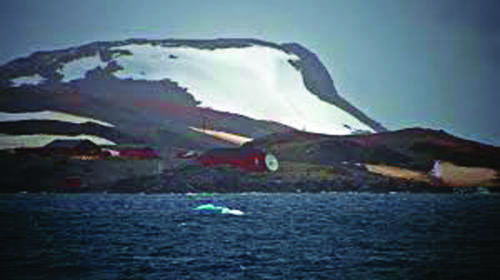NE NEWS SERVICE
BUENOS AIRES, FEB 8
Argentine Antarctica had on Thursday its hottest day on record since readings began, the National Meteorological Service said.
Temperatures climbed to 18.3°C at midday at the research station Esperanza base, the highest temperature on record since 1961, according to the meteorological service. The previous record stood at 17.5°C, on March 24, 2015.
Argentina has had a presence in Antarctica for the past 114 years, including several scientific research bases, and is also a signatory of the Antarctic Treaty, which came into force in June 1961 and prohibits any militarization of the continent. Accelerating melt-off from glaciers and especially ice sheets in Antarctica is helping drive sea level rises, threatening coastal megacities and small island nations.
At Argentina’s Marambio base, temperatures reached 14.1°C on Thursday, the hottest temperature for a day in February since 1971. The previous record occurred on February 24, 2013, when temperatures reached 13.8°C.
Argentina’s Antarctica base also recorded the hottest Feb day on Thursday -14.1°C since 1971
Mass extinction of bumblebees underway
Rising temperatures are contributing to drastic declines of bumblebees across Europe and North America at rates “consistent with a mass extinction”, threatening food cultivation, a study has concluded. Researchers estimated that Europe’s bumblebee populations fell by 17 per cent between two periods the study looked at—from 1901-1974 and from 2000-2014—while in North America, the figure was 46 per cent. “The last time that we saw a similar kind of rate of extinction was when the asteroid struck the earth and killed the dinosaurs,” said Peter Soroye, lead author of the study. “So I don’t think there’s much discussion right now as to whether we’re in a period of mass extinction.” Courtesy: Agencies









